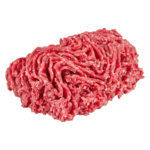The U.S. Department of Agriculture’s Food Safety and Inspection Service (FSIS) announced That La Rosita Fresh Market Inc., from Mt. Prospect, Ill. retail store, recalled approximately 54 pounds of raw ground beef products that may be contaminated with E. coli O157:H7. The raw ground beef items are ground in the store and packaged for consumers behind the meat counter in varying weights. The raw ground beef items were packed on March 13, 2019, and March 14, 2019. These items were only sold in the La Rosita Fresh Market Inc. retail store, located at 1805 W. Algonquin Rd., Mt. Prospect, IL, 60056. The problem was discovered on March 14, 2019, by FSIS investigators through routine product sampling. There have been no confirmed reports of adverse reactions due to consumption of these products. @ https://www.fsis.usda.gov/wps/portal/fsis/topics/recalls-and-public-health-alerts/recall-case-archive/archive/2019/recall-033-2019-release
ruth
La Rosita Fresh Market Inc., a Mt. Prospect, Ill. retail store, is recalling approximately 54 pounds of raw ground beef products that may be contaminated with E. coli O157:H7.
ruth
The U.S. Food and Drug Administration issued its final rule and the new compliance dates for the agricultural water requirements in the FDA Food Safety Modernization Act (FSMA) Produce Safety Rule. Larger farms are now required to comply with the agricultural water requirements by January 26, 2022, while small farms have until January 26, 2023, and very small farms until January 26, 2024. This rule does not change the compliance dates for sprout operations. The FDA intends to use the time until compliance to work with stakeholders to address these concerns. FDA remains firmly committed to incorporating lessons learned from these recent outbreaks, and to using the best science available to help minimize the risk that produce can become contaminated. As we continue to work with stakeholders on issues raised regarding the agricultural water requirements, FDA strongly encourages farms to ensure that water is suitable for its intended use and to continue using good agricultural practices to maintain and protect the quality of their water sources. Farms are responsible for ensuring that the food they produce is not adulterated. @ https://www.fda.gov/Food/NewsEvents/ConstituentUpdates/ucm633483.htm?utm_campaign=Agricultural%20Water%20Provisions_3_15_2019%20Email&utm_medium=email&utm_source=Eloqua
FDA issued a rule to finalize the new compliance dates for the agricultural water requirements in the FSMA Produce Safety Rule.
ruth
The Packer reports that green leaf suppliers start receiving requests from customers for guarantees that its lettuces and products were safe. Customers also demanded that the produce be tested by laboratories to assure lack of contamination. Producers have taken steps such as installing 13-foot fences and hiring a guard to walk around the crops at night. The California Department of Food and Agriculture announced in February on-farm inspections at large farms — those with $500,000 or more in sales — will start in April under guidelines going into effect this year to validate compliance with the Produce Safety Rule of the federal Food Safety Modernization Act. Another big issue for growers is the labor shortage. Growers are increasingly turning to the H-2A program to find workers, and taking housing into their own hands to supply workers with affordable places to live. @ https://www.thepacker.com/article/e-coli-outbreak-effects-linger-leafy-greens-growers?mkt_tok=eyJpIjoiTkdVM09XSTRNRFJtT1RnNCIsInQiOiI3NjZHZGJ3RXRudGUyQWVOMUtERGV5VnkyNE1NRHp3NytaNVgzRnFYY3h0c2huT0xzTlVMemxzK3NzXC9MTlhMY2VicGsyQzdwTnlhNk9NUitEcHRHRDlWUUtSSFwvUVFOSkdqSkd4N1duVzhLYWxFSzNUdGJUeFRDQWhpcjNDY0ptIn0%3D
Vegetable growers of red and green leaf lettuce, romaine lettuce, cauliflower and broccolini, among other crops, is feeling a ripple effect from last year’s multistate E. coli outbreaks and subsequent recalls.
ruth
The U.S. Department of Agriculture’s Food Safety and Inspection Service (FSIS) announced t that Butterball, LLC, from Mount Olive, N.C., recalled approximately 78,164 pounds of raw ground turkey products that may be contaminated with Salmonella Schwarzengrund. The prepared raw ground turkey was produced on July 7, 2018. These items were shipped to institutional and retail locations nationwide. FSIS and public health partners, including the Centers for Disease Control and Prevention (CDC), the Wisconsin Department of Health Services and Wisconsin Department of Agriculture, Trade and Consumer Protection, have been investigating a multistate outbreak of Salmonella Schwarzengrund illnesses involving 5 case patients from 2 states. Wisconsin collected three intact Butterball brand ground turkey samples from a residence where 4 of the case patients live. The case patients and ground turkey Salmonella Schwarzengrund isolates are closely related, genetically. @ https://www.fsis.usda.gov/wps/portal/fsis/topics/recalls-and-public-health-alerts/recall-case-archive/archive/2019/recall-030-2019-release
Butterball, LLC, a Mount Olive, N.C. establishment, is recalling approximately 78,164 pounds of raw ground turkey products that may be contaminated with Salmonella Schwarzengrund.




